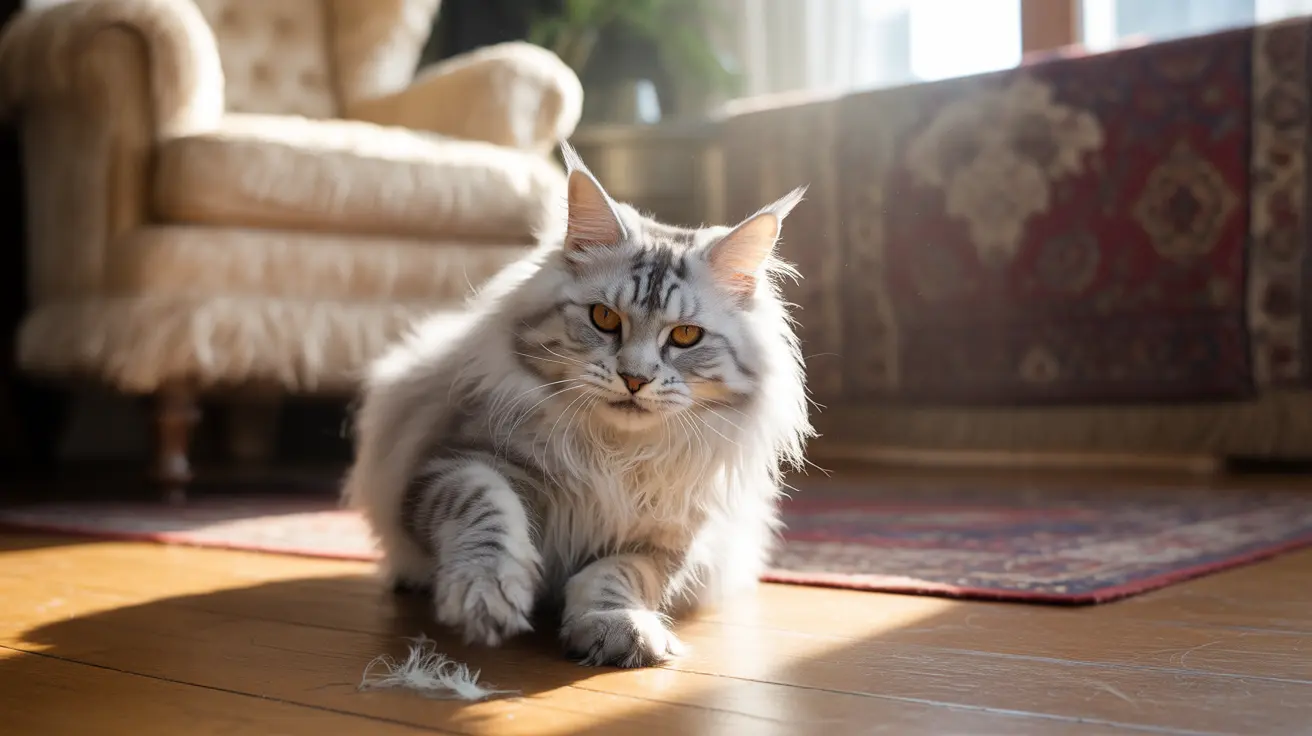The Evolutionary Purpose Behind Floor Scratching
Floor scratching is deeply embedded in your cat's DNA, tracing back to their wild ancestors. In nature, cats would scratch and paw at the ground to bury leftover food, protecting themselves from potential predators who might track them through food scents. This survival instinct remains strong in domestic cats, even when they live in completely safe environments.
Even well-fed house cats may scratch around their food bowls or feeding areas, attempting to "cache" their meals – a behavior that perfectly demonstrates how ancient instincts persist in modern pets.
Communication Through Scent Marking
Your cat's paws contain special scent glands that release unique pheromones during scratching. When they scratch the floor, they're actually leaving behind their personal signature, marking territory and communicating with other cats. This behavior is particularly common in multi-cat households where establishing boundaries is important.
Physical Benefits and Exercise
Floor scratching serves several physical purposes for your cat. It helps maintain claw health by removing old sheaths and keeping claws sharp. The stretching motion involved provides valuable exercise for your cat's muscles, particularly in the shoulders and back. This natural behavior also helps your cat stay limber and maintains their physical well-being.
Emotional and Behavioral Factors
Cats often scratch floors in response to various emotional states. Stress, anxiety, or excitement can trigger this behavior as a self-soothing mechanism. Sometimes, cats scratch floors to gain attention from their owners, having learned that this action usually provokes a response.
Changes in the household, such as new pets, moves, or visitors, may increase floor scratching as your cat attempts to cope with the environmental shifts.
When Floor Scratching Signals Problems
While most floor scratching is normal, excessive or unusual scratching patterns might indicate underlying issues. Watch for scratching accompanied by other behavioral changes, such as increased aggression, hiding, or changes in eating habits. These combinations could signal stress, medical problems, or dissatisfaction with aspects of their environment.
Managing and Redirecting Scratching Behavior
- Provide appropriate scratching alternatives like posts and pads
- Ensure clean, accessible litter boxes
- Maintain regular feeding schedules
- Create an enriching environment with toys and play opportunities
- Consider using deterrent sprays or double-sided tape in problem areas
Frequently Asked Questions
Why does my cat scratch the floor after eating?
This behavior stems from the instinctual need to bury food remains, a survival mechanism inherited from wild ancestors. Even though your domestic cat doesn't need to hide food, the instinct remains strong and manifests as scratching around feeding areas.
How does floor scratching help my cat mark its territory?
Cats have scent glands in their paws that release pheromones when scratching. This leaves both visual marks and chemical signals that communicate territory boundaries to other cats and create familiar, comforting scent markers for your pet.
Can floor scratching be a sign of stress or health problems in cats?
Yes, excessive or sudden changes in scratching behavior can indicate stress, anxiety, or underlying health issues. If accompanied by other behavioral changes or symptoms, consult your veterinarian for a proper evaluation.
What can I do to stop my cat from scratching the floor destructively?
Provide appropriate scratching alternatives, ensure environmental enrichment through toys and play, maintain consistent routines, and address any underlying stress factors. Never punish scratching; instead, redirect it to acceptable surfaces.
Why do cats scratch floors instead of just scratching furniture or posts?
Cats naturally scratch both horizontal and vertical surfaces for different purposes. Floor scratching often relates to territory marking, food-burying instincts, or responding to scents. Some cats simply prefer the texture or resistance of certain floor surfaces.
Understanding your cat's floor scratching behavior helps you better support their natural instincts while protecting your home. Remember that scratching is normal and healthy – the key is managing it appropriately while ensuring your cat's physical and emotional needs are met.






